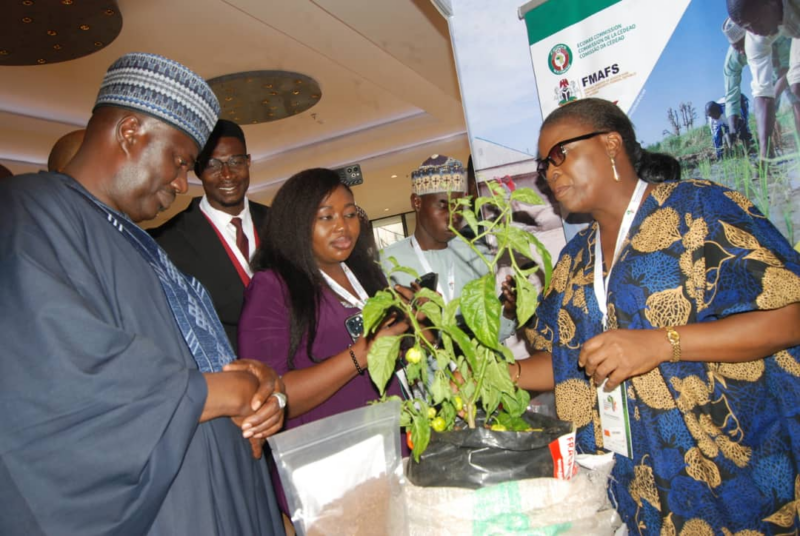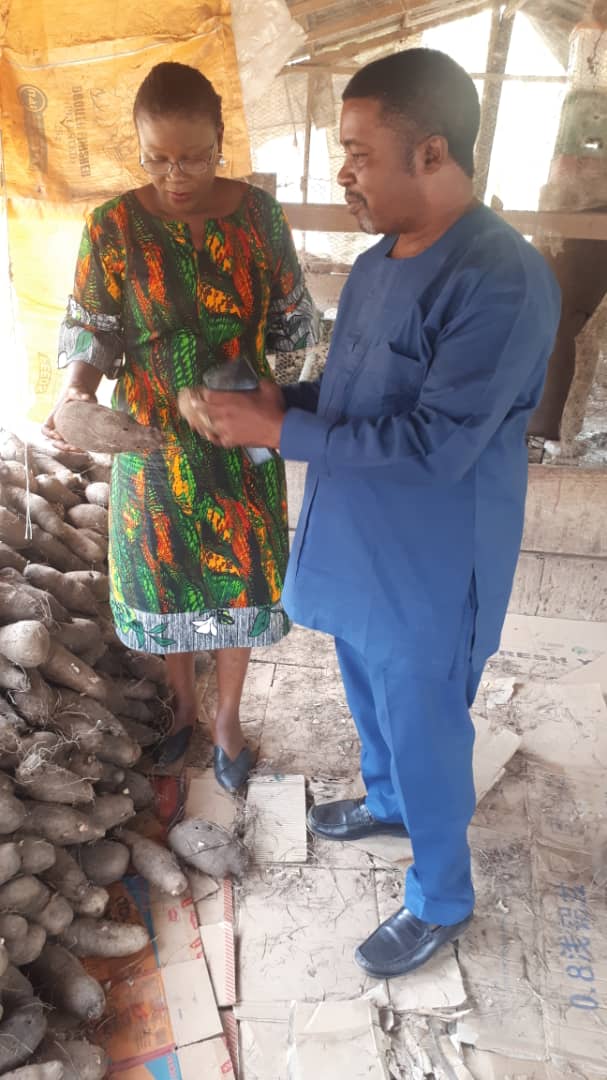Elizabeth Olanrewaju Nwankwo, Founder & CEO of Oklan Best Ltd, a small exporter specialising in value-added premium farm produce, discusses the differences electronic phytosanitary (ePhyto) certification is making to her business and the challenges she faces as a woman entrepreneur.
 As a veteran women entrepreneur operating in a traditionally male environment, Elizabeth Olanrewaju Nwankwo might best be described as a force of nature. Around 300 women farmers rely on her business acumen for their livelihoods, supporting an estimated 2,000 people in their households.
As a veteran women entrepreneur operating in a traditionally male environment, Elizabeth Olanrewaju Nwankwo might best be described as a force of nature. Around 300 women farmers rely on her business acumen for their livelihoods, supporting an estimated 2,000 people in their households.
After graduating with a degree in chemistry and biochemistry, Ms Nwankwo, began her career as a secondary school teacher before branching into IT training. She began dabbling in cross-border trade in everything from textbooks and machinery to fish before deciding to start up Oklan Best in 2009.
At the outset, the company concentrated solely on primary food exports but faced with meeting stringent traceability, quantity demands, and spoilage issues associated with perishable produce, she quickly pivoted to encompass growing and processing at source.
“Our system ensures that companies can be confident in knowing exactly where our produce is coming from and that we are aware of quality control responsibilities throughout the supply chain,” she said.
After purchasing 100 hectares of land in 2009, the company also began working with local farmers to supply a broad range of foodstuffs to international markets, including cocoa, cashew nuts, cassava, ginger, and shea butter in raw and processed form. Oklan Best also engages in storage, research & development, training, and assisting farmers to procure development financing.
Oklan Best has overcome many obstacles since, even surviving a bandit attack in 2020 that destroyed the company farm, burning produce and animal feeds.
 On an ongoing basis, aside from the many financial challenges faced by most micro, small and medium enterprises (MSMEs), Ms Nwankwo must contend with gender barriers.
On an ongoing basis, aside from the many financial challenges faced by most micro, small and medium enterprises (MSMEs), Ms Nwankwo must contend with gender barriers.
“Men often find it difficult to take instructions from women… And even women can find it hard to accept you as an entrepreneur sometimes, questioning your motivation and why you are venturing into a traditional male domain.
Culturally, women are not expected to earn an income in this way or to gather male farmers together, but these are things we have been able to surmount.
These attitudes persist but I am now judged more on my performance than on perceptions about my gender.”
After the National Agricultural Quarantine Service (NAQS) made her aware of its potential, Ms Nwankwo attended Alliance-supported training and became pro-active in adopting the International Plant Protection Convention (IPPC) ePhyto Solution. She describes it as a ‘game-changer’ for her company, drastically reducing processing times for phytosanitary certification, while also enabling better scheduling to allow raw products to reach markets more quickly and cost-effectively.
It reduces turnaround times and is encouraging farmers to become more export-oriented because ePhytos improve traceability,” she said. “It is a solution that is long overdue – the positive response towards it has gladdened my heart.”
Ms Nwankwo and other agricultural exporters in Nigeria still have significant obstacles to overcome but ePhyto means frequent trips to government offices and unpredictable delays are largely consigned to the past.


